/ Thus Spake Al-Khwãrizmi
in Dixit Algorizmi - The Garden of Knowledge
Contribution to the catalogue of the Uzbekistan Pavilion at the 59th Venice Biennale
2021
in collaboration with Amandine David
ABSTRACT
Programming language made of 0s and 1s finds its origin in the automation of looms, where punch cards generating the patterns bore either a hole or flat surface. On a computer screen, the lines made of 0s and 1s are mathematical abstractions for those who don’t read this language. Their logics seem depraved from any poetry, humanity or relation to their context. This abstraction of coding can be a risk as it generates distance with a language that also carries social biases and human responsibility of decision making. Because of its straightforward implementation in digital electronics circuitryn the binary system is used by almost all computer-based devices. By engaging in a dialogue made of drawings and short writings, Camilla Colombo and Amandine David explore how this mathematical language originates from the materiality of threads and what it means in its daily applications. What meaning can be instilled in devices throught zero and ones? How can an abstract mathematical language translate the complex sensititvity of human intuitions?
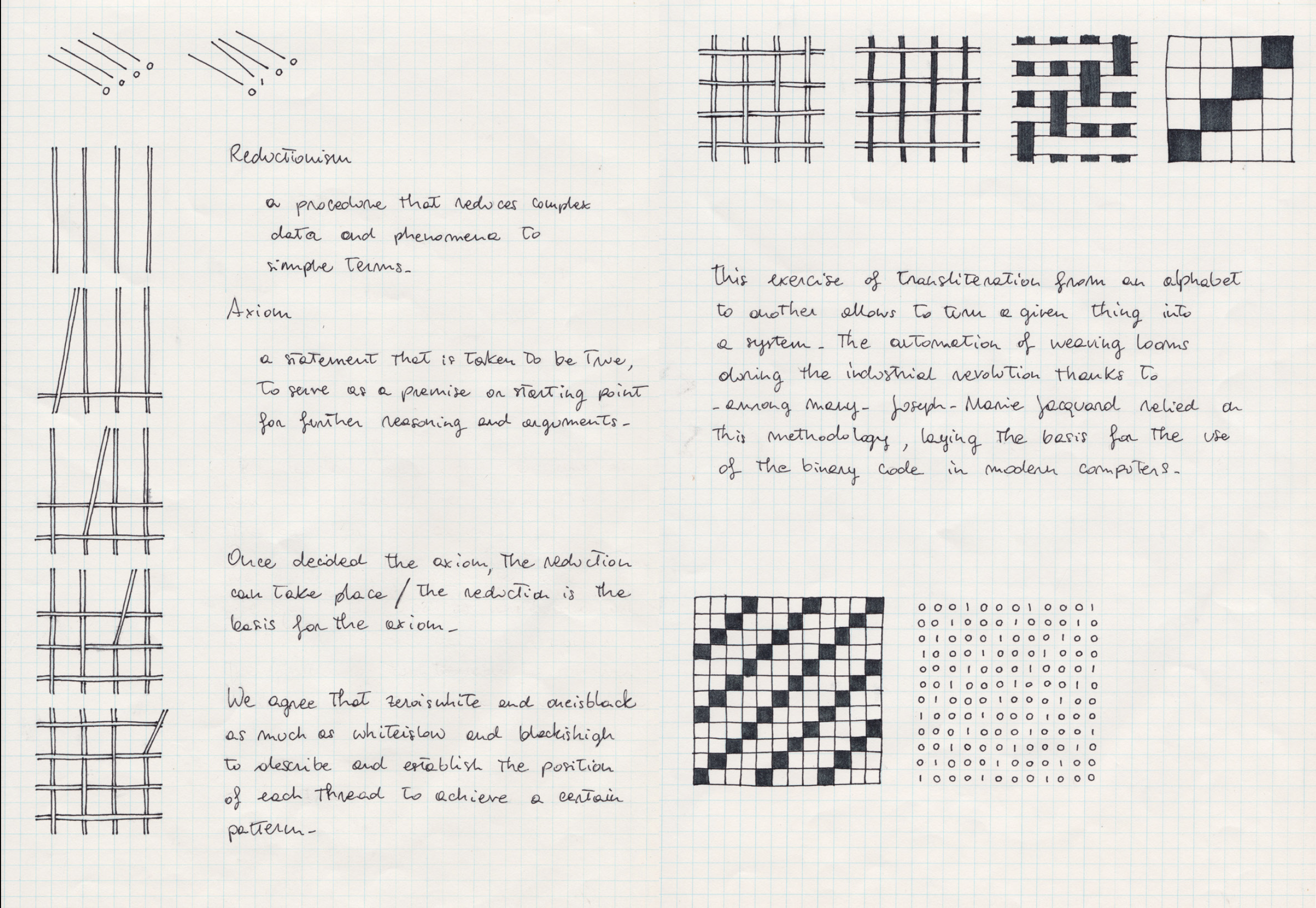



TEXT TRANSCRIPT
Reductionism
a procedure that reduces complex data and phenomena to simple terms.
Axiom
a statement that is taken to be true, to serve as a premise or starting point for further reasoning and arguments.
Once decided the axiom, the reduction can take place / the reduction is the basis for the axiom.
We agree that zeroiswhite and oneisblack as much as whiteislow and blackishigh to describe and establish the posi-
tion of each thread to achieve a certain pattern.
This exercise of transliteration from an alphabet to another allows to turn a given thing into a system. The automation
of weaving looms during the industrial revolution thanks to - among many - Joseph-Marie Jacquard relied on this
methodology, laying the basis for the use of binary code in modern computers.
Different weaving patterns carry different names, evoking a particular set of qualities, a particular history, a particular
mastery, a particular geography, a particular physical outcome.
The know-how traditionally in the hands of weavers slid into the hands of coders; a language that is understood by
the initiated - a grid of black and white squares or a sequence of 0's and 1's.
If a weaver can read the above, the coder can read:
Dixit Algorizmi - The Garden of Knowledge is an ongoing exhibition and research project curated by Space Caviar and Sheida Ghomashchi, commissioned by ACDF, Art and Culture Development Foundation under the Ministry of Culture of the Republic of Uzbekistan. Initiated in 2019, it has been presented at CCA Tashkent (2021) and at the 59th International Architecture Exhibition, la Biennale di Venezia (2022). This catalog, published to coincide with the opening of the exhibition in Venice, presents a series of essays reflecting on the themes addressed in the exhibition series. The essays were directly commissioned or submitted by authors following an open call published in 2020.
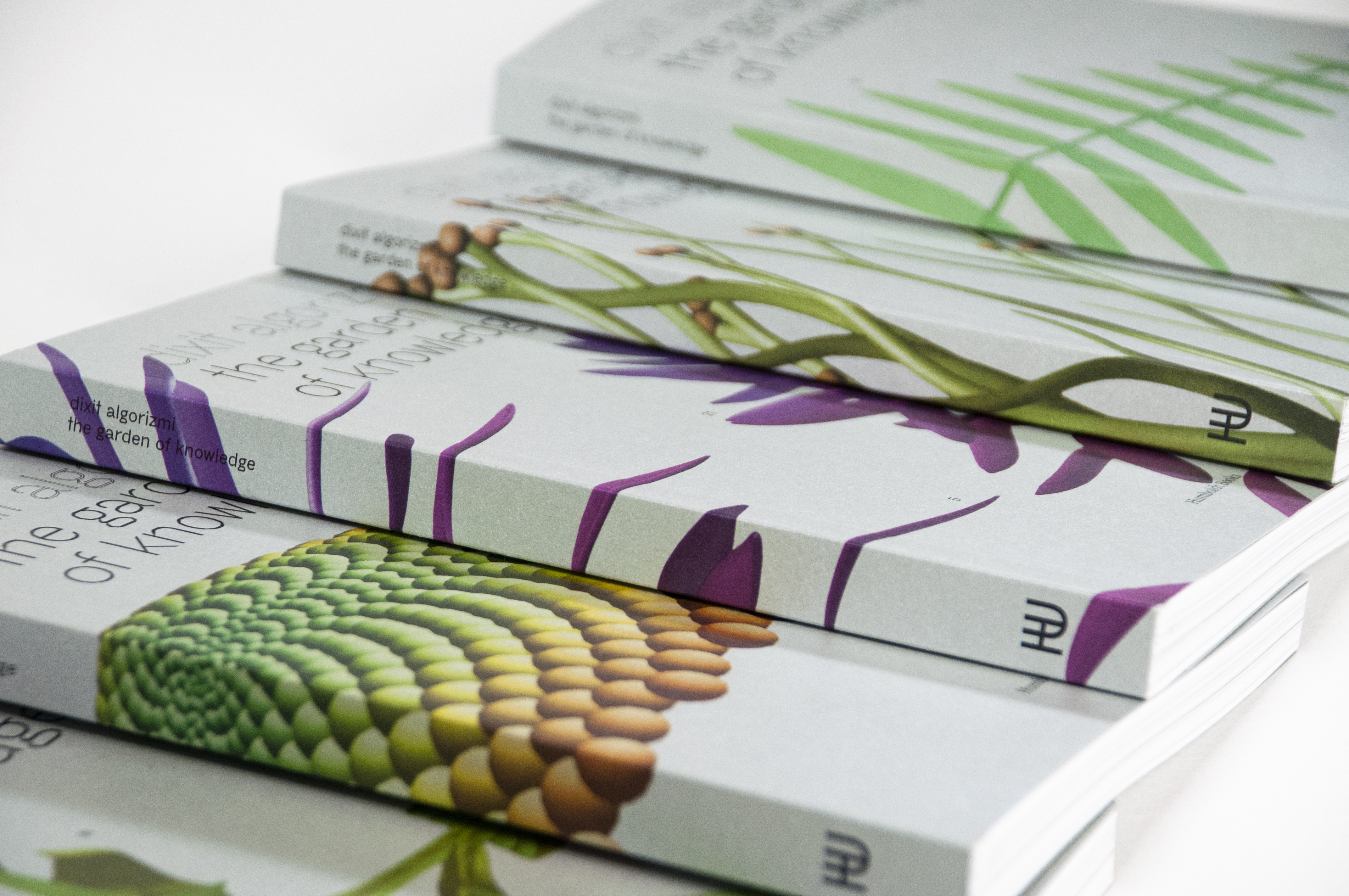
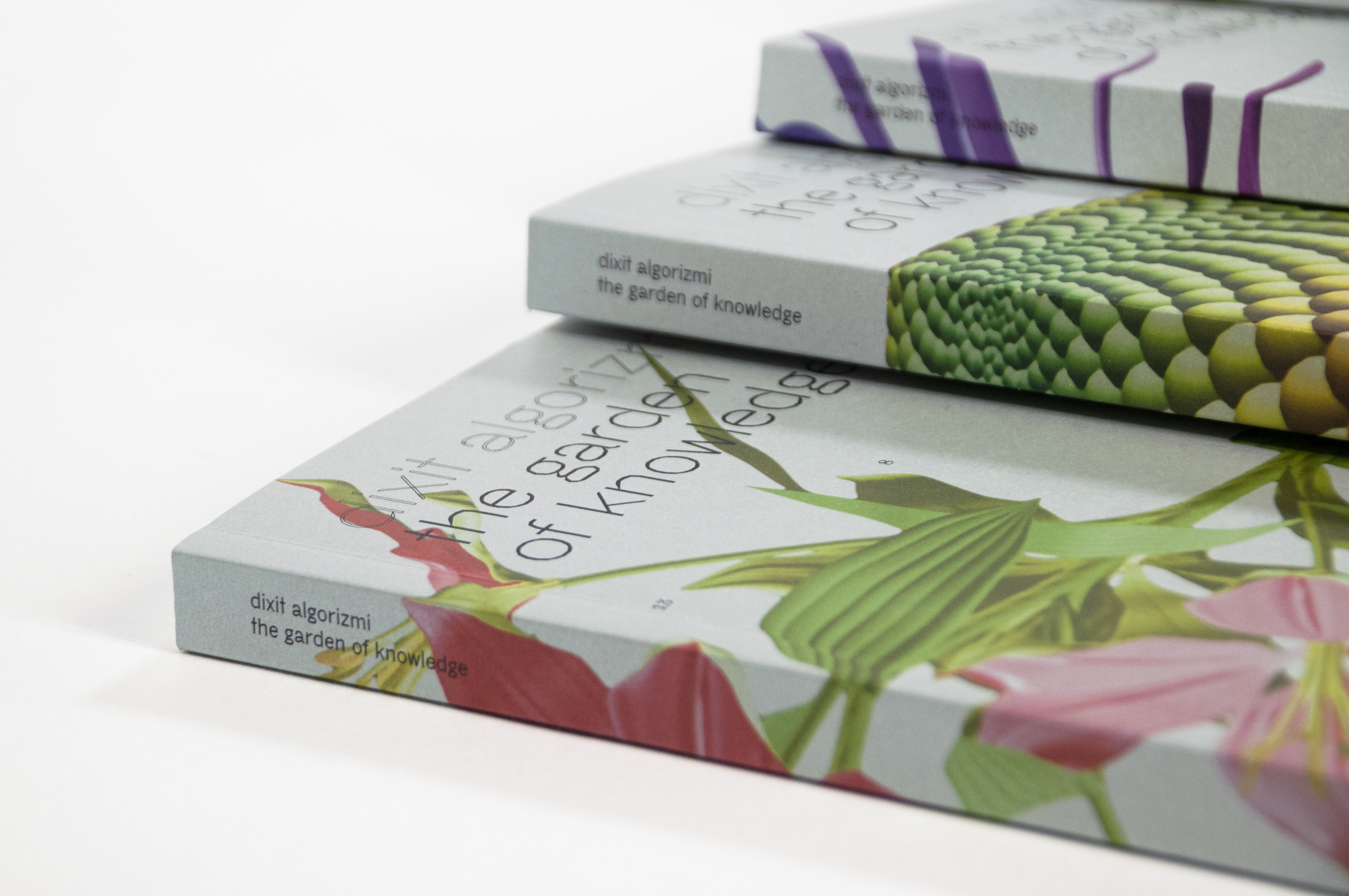
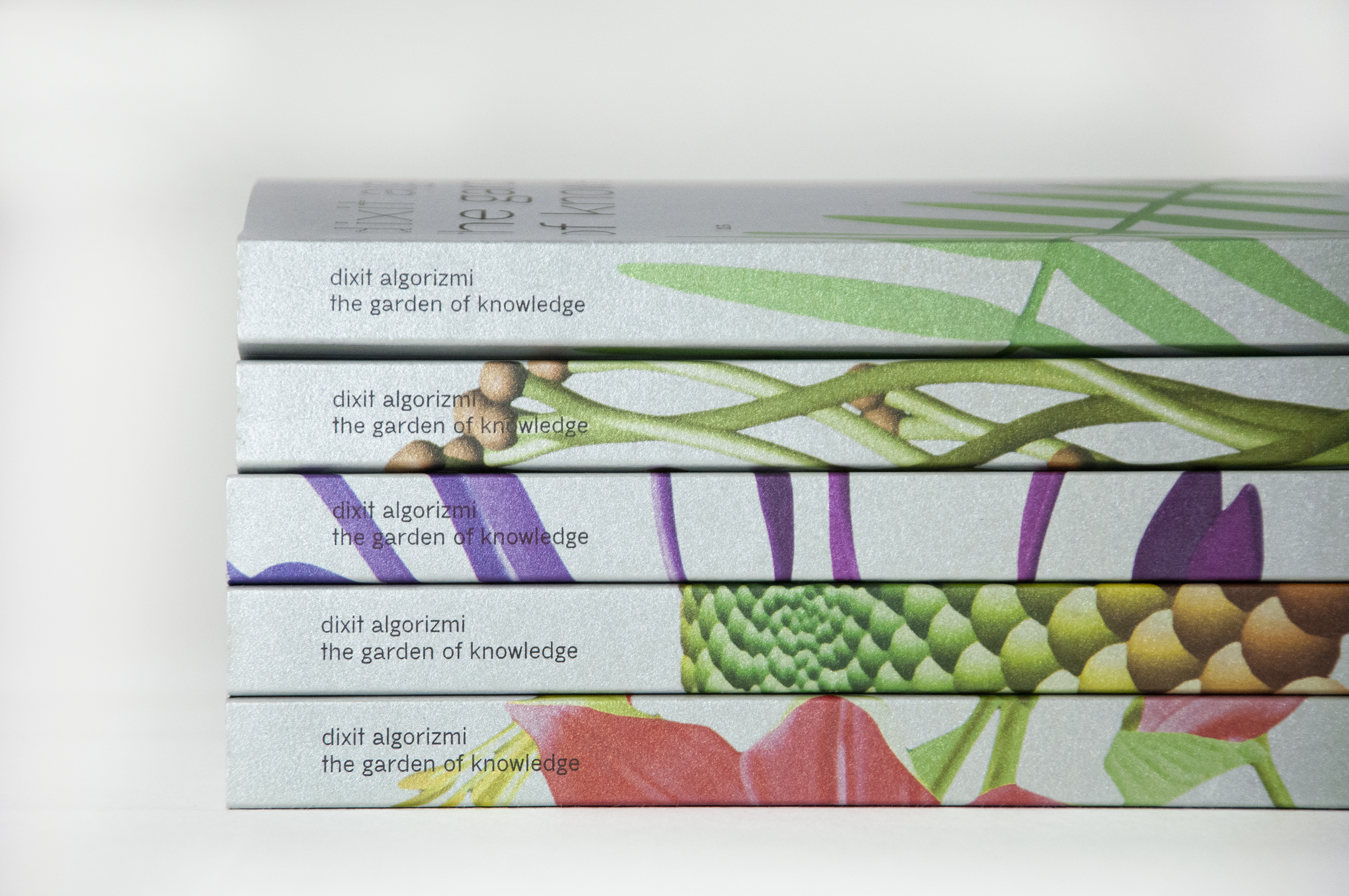
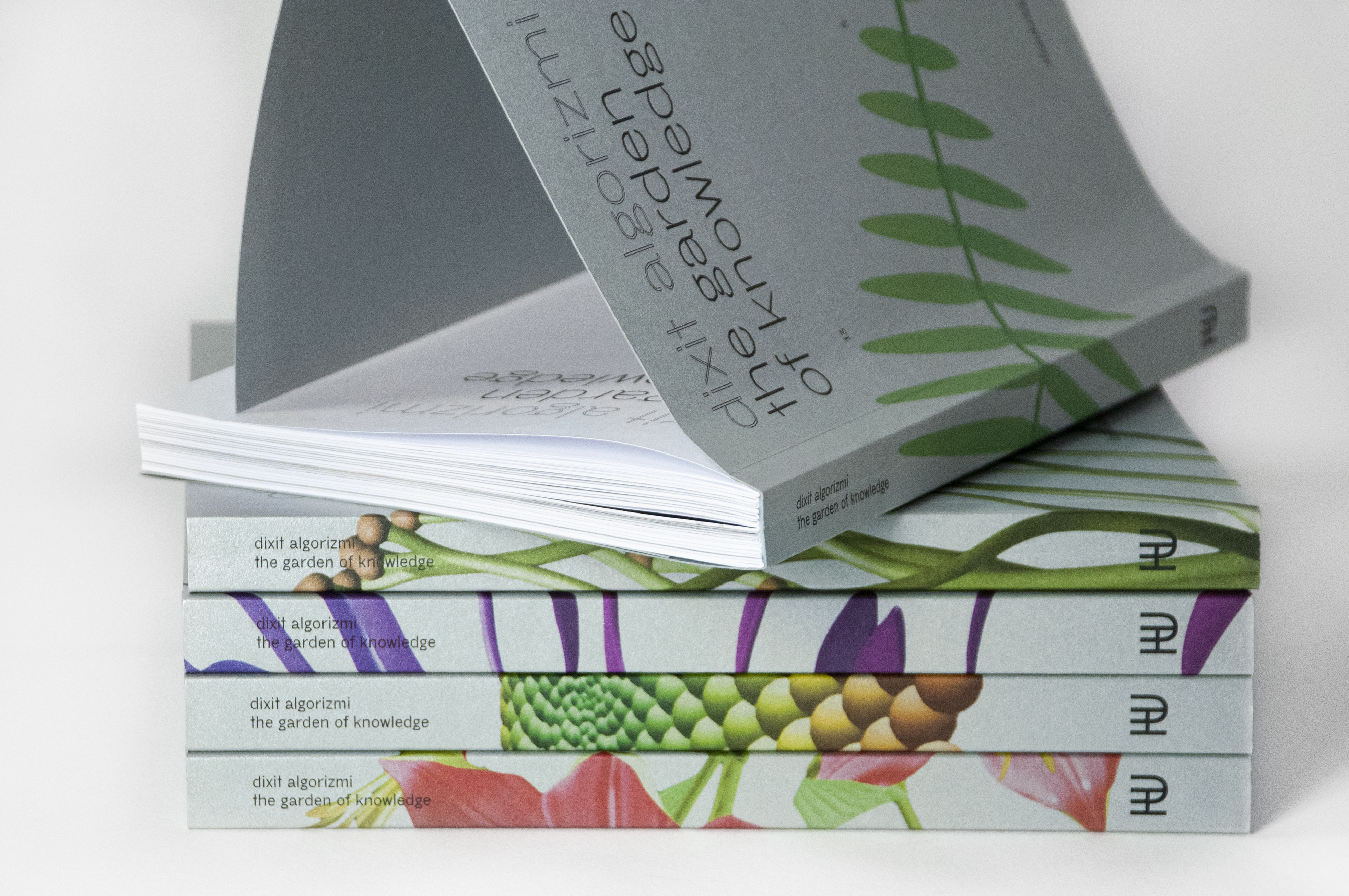
Dixit Algorizmi - The Garden of Knowledge sets out to question the origin myths and narratives surrounding modern technologies, using the lens of contemporary artistic practices to explore their forgotten roots and overlooked resonances with distant places, times, and cultures. The book presents a reflection on the seminal work of Muhammad ibn Musa al-Khwārizmī, a scientist and polymath born and raised in the city of Khiva (present-day Uzbekistan). Al-Khwārizmī’s treatise On the Calculation with Hindu Numerals (825 CE), was responsible for the introduction of Hindu-Arabic numerals to Europe, and it was the Latin transliteration of al-Khwārizmī’s name to Algorizmi that gave us the modern word algorithm. Dixit Algorizmi - The Garden of Knowledge engages divergent interpretations of technology as a medium, acknowledging the depth and complexity of its history.
Texts by: Eddie Blake, Vera van der Burg, Amanulla Buriev, Christopher Burman, Alessandro Celli, Maya Christodoulaki, Fabiano Cocozza, Camilla Colombo, Amandine David, Shady Elbassuoni, Ali Ghomashchi, Michael Kessler, Ibrahim Kombarji, Maxwell Neely Cohen, Outpost Office, Dámaso Randulfe, Sara Raza, Ayesha Saldanha, Roo Shamim, Ilaria Speri, Noam Youngrak Son
Design by Studio Folder
The project was supported by Saida Mirziyoyeva, the Deputy Chairwoman of the Council of the ACDF, and commissioned by Gayane Umerova, the Executive Director of ACDF. In collaboration with the CCA Lab Tashkent.
www.nationalpavilion.uz
